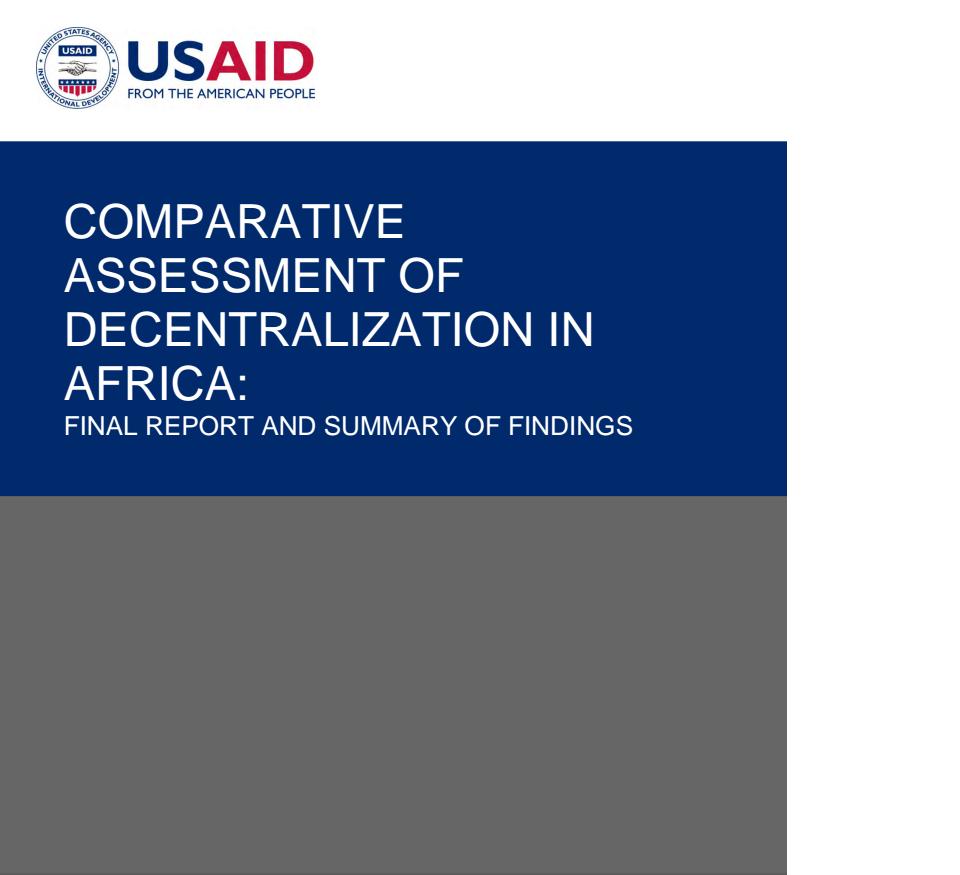Comparative Assessment of Decentralization in Africa: Final Report and Summary of Findings

This is a comparative report that draws on 10 national level desk studies to assess the status of government decentralization in Africa, Ghana and Mali are included in the desk studies. The authors go into detail about the motivations behind decentralization, how it is progressing differently in different places, and outlooks for the future.
Contributors
J. Tyler Dickovick, Associate Professor of Politics Washington and Lee University and Rachel Beatty, Riedl Assistant Professor of Politics Northwestern University
Introduction
Decentralization has advanced considerably in Africa in the last two decades. Since 1990, many African central governments have initiated or deepened processes to transfer authority, power, responsibilities, and resources to sub-national levels.
The following topics are discussed:
- 1.0 Why Decentralize?
- 1.1 Theory: The Benefits of Decentralization
- 1.2 Practice: The Political Economy of Decentralization
- 2.0 Trends and Tendencies: Comparative Achievement and Limitations in African Decentralization
- 2.1 Legal Frameworks: Authority vs. Autonomy
- 2.2 Political Decentralization
- 2.3 Fiscal Decentralization
- 2.4 Administrative Decentralization
- 2.5 Local Service Provision
- 3.0 Exceptional Successes
- 3.1 Institutionalizing Legal Authority
- 3.2 Promoting Fiscal Autonomy
- 3.3 Decentering Political Accountability
- 3.4 Building Administrative Capacity: Where has it worked?
- 4.0 Patterns of Variation
- 4.1 Demographies, Geographies, and Economies
- 4.2 Colonial Heritage
- 4.3 Conflict and Post-Conflict Environments
- 4.4 Regime Types: Authoritarian and Democratic Regimes
- 4.6 Timing and Sequencing
- 4.7 Patterns of Fiscal Decentralization
- 4.8 Political Parties and Party Systems
- 4.9 Power of Traditional Authority
- 5.0 The Way Forward: Policy Implications
- 5.1 Comparative Lessons
- 5.2 Conclusions for Policymakers
Suggested Citation
Dickovick, J.T. and Riedl, R.B. (2010) Comparative Assessment of Decentralization in Africa: Ghana and Mali Desk Studies. USAID Report. USAID: Washington D.C., USA
(0) Comments
There is no content